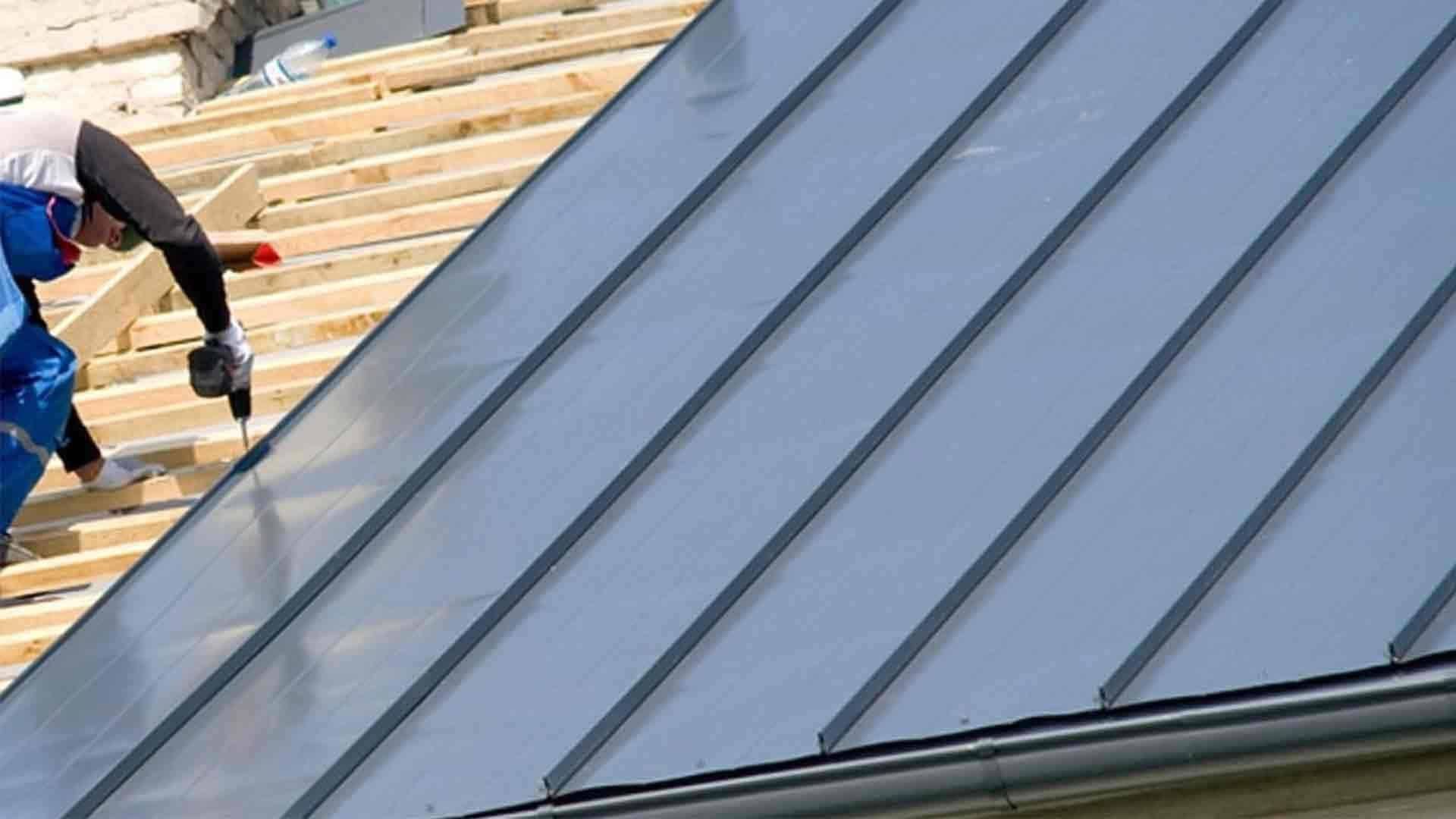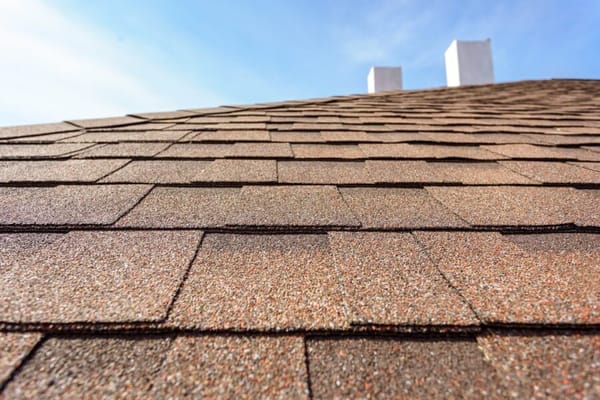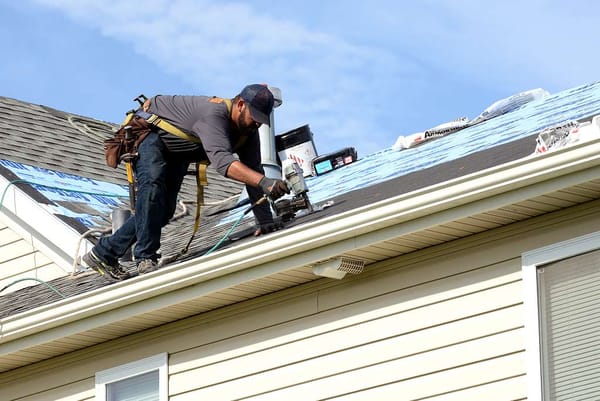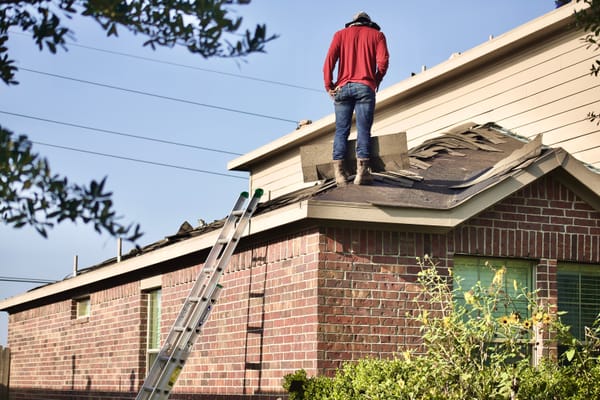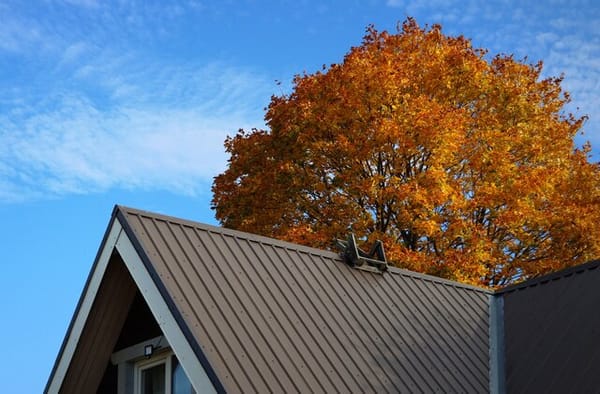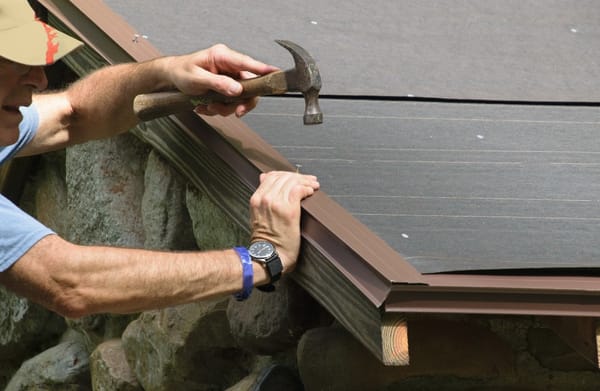Are you thinking about installing a metal roof? Understanding the cost is critical before undertaking any home improvement project. So, how much does metal roofing cost?
A new metal roof costs about $13,000 on average but can range anywhere from $9,105–$16,980.
Choosing from different types of metal roofs like steel, aluminum, copper, or zinc, comes with different cost implications. While steel and aluminum are more affordable, copper and zinc are on the pricier side, boasting enhanced durability and a distinct aesthetic appeal.
How Much Does Metal Roofing Cost?
While prices can vary, on average, homeowners spend between $5 and $14 per square foot. This price range includes the cost of materials, which typically falls between $3 and $10 per square foot, and labor, which can range from $1.50 to $4 per square foot.
Several factors influence the final cost, including the type of metal used, the complexity of your roof's design, and the area of the country in which you live.
Cost Comparison of Metal Roofing
| Material | Average Price per Square Foot (Installed) | Price per Sheet | Price for 1,700 Square Feet |
|---|---|---|---|
| Galvalume Steel | $4–$9 | $400–$900 | $6,800–15,300 |
| Galvanized Steel | $4.50–$17 | $450–$1700 | $7,650–$28,900 |
| Aluminum | $6.50–$21 | $650–$2,100 | $11,050–$35,700 |
| Stainless Steel | $7–$20 | $700–$2,000 | $11,900–$34,000 |
| Tin (Terne) | $10–$26 | $1,000–$2,600 | $17,000–$44,200 |
| Zinc | $14.50–$21 | $1,450–$2,100 | $24,650–$35,700 |
| Copper | $20–$40 | $2,000–$4,000 | $34,000–$68,000 |
*Source: "This Old House"
Benefits of Metal Roofing
Metal roofing comes with numerous benefits that make it a popular choice among homeowners. Here are some key advantages:
- Longevity: Metal roofs are known for their long lifespan. They can last anywhere between 40 to 70 years, depending on the metal type, significantly outlasting traditional asphalt roofing, which usually lasts 12-20 years.
- Durability: Metal roofs can withstand harsh weather conditions, including heavy snow, rain, high winds, and extreme temperatures. Some metal roofing materials are also impact-resistant, reducing the likelihood of damage from falling debris or hail.
- Fire Resistance: Metal roofs are noncombustible and have a Class A fire rating, which is the highest level of protection against fire.
- Energy Efficiency: Metal roofs reflect solar radiant heat, which can reduce cooling costs by 10-25%. This makes them an environmentally friendly option, reducing your home's energy usage.
- Low Maintenance: Unlike other roofing materials, metal roofs require little maintenance once they're installed. They don't crack, erode, or corrode, and they're resistant to mildew, rot, and pests.
- Aesthetics: Metal roofs come in a variety of styles and colors, which allows homeowners to match their home's architectural style and personal taste.
- Recyclability: At the end of their life, metal roofs are 100% recyclable, making them a sustainable choice.
Overall, while the initial cost may be higher than other materials, a metal roof's benefits in terms of durability, longevity, and energy savings make it a cost-effective choice in the long run.
Metal Roofing FAQ's
- What are the different types of metal roofs and their respective costs? It's important for potential buyers to understand the range of metal roof materials available, such as aluminum, steel, copper, zinc, and tin, as well as their associated costs. The cost will depend not only on the type of metal used but also on the style of the roof and installation costs.
- How long does a metal roof last compared to traditional roofing materials? One of the key advantages of metal roofing is its longevity, so it's important to compare the lifespan of a metal roof to that of traditional materials like asphalt shingles. Include details about maintenance factors and costs over the roof's lifespan.
- How does the installation cost of a metal roof compare to other roofing materials? Metal roofs may have a higher initial installation cost than some other materials, but they can also last much longer and require less maintenance. Breaking down the upfront and long-term costs can help homeowners make an informed decision.
- What are the maintenance requirements and costs for metal roofs? Many homeowners are interested in understanding what it will take to keep their metal roof in good condition. Discuss the typical maintenance practices, like cleaning and periodic inspections, and the associated costs.
- Can metal roofs increase the value of a home? In many cases, a metal roof can increase a home's value due to its durability, energy efficiency, and attractive appearance. However, the increase in value can depend on the local real estate market and the quality of the installation. Potential buyers might also be interested in knowing if there are any cost savings from improved energy efficiency with metal roofs.

